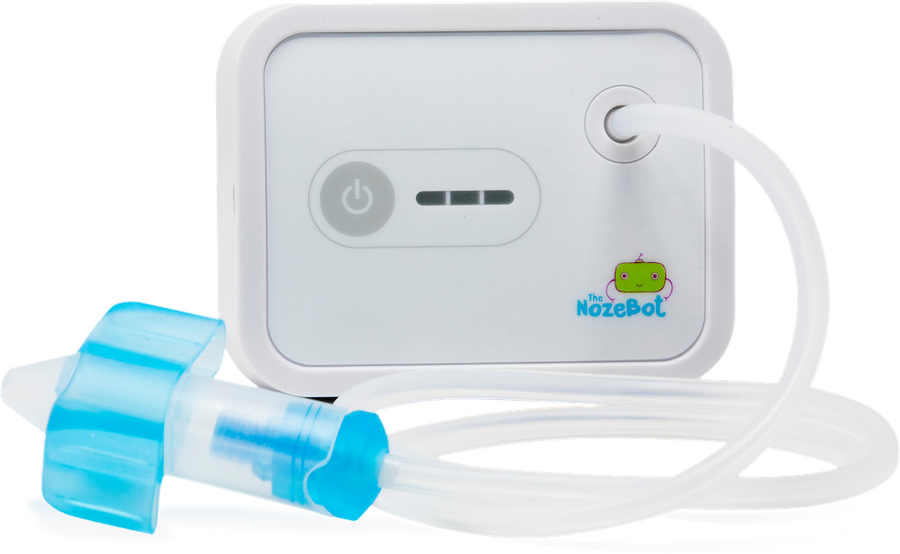Guest post by Holly Sanford, RN
Congenital hearing loss is present in about 3 out of every 1,000 newborn babies. Additionally, according to the CDC, 14.9 % of children may experience acquired hearing loss for various reasons at different stages in their development. It is important to provide regular hearing screenings for kids to identify hearing loss in children to optimize speech development, learning to read and write, and quality of life. Early screening, diagnosis, and treatment lead to stronger academic and social outcomes for children.
Importance of Back-to-School Hearing Screening for Kids

Back to school time means lots of back to school appointments for our little ones. If you have any concern about your child's hearing, scheduling hearing screening for kids is a great thing to do before the new school year starts.
When Should My Child Be Screened?
According to the American Academy of Pediatrics, children’s hearing should be screened at the following ages: newborn, 4 years, 5 years, 6 years, 8 years, 10 years, between 11-14 years, between 15-17 years and between 18-21 years. Moreover, it is important to have your child screened if you notice any signs of hearing loss.
How is Hearing Loss Diagnosed?
Specialists often use a combination of hearing tests based upon the child’s age and development to determine the presence and severity of hearing loss. The evoked otoacoustic emissions (EOAE) and the auditory brainstem response (ABR) are often utilized to identify hearing loss in newborns. These tests are automatic and do not require a behavioral response from your child, but may be affected by fluid behind the ear drums. Behavioral audiometry, play audiometry and virtual reinforcement audiometry are most commonly exercised in older babies and in toddlers in addition to EOAE and ABR. Older children are evaluated through a combination of any of the above-mentioned screening tests as well as pure tone audiometry and tympanometry. Many of these tests can be completed at your provider’s office.

What are the Types of Hearing Loss?
Hearing loss can be mild, moderate or severe. The three types of hearing loss include:
Sensorineural Hearing Loss
There is a loss of function when damage occurs in the inner ear (cochlea) or with the nerve pathways to the brain.
Conductive Hearing Loss
Sound waves are not correctly sent through the ear canal, ear drum, or middle ear bones due to a blockage (think wax or fluid) in the outer ear canal or middle ear behind the ear drum
Mixed Hearing Loss
Damage has occurred to the outer, middle or inner ear that reduces sound waves getting through the ear canal and ear drum and damage to the inner ear structures. There may be damage to the auditory nerve. There is simultaneous sensorineural and conductive hearing loss.
What are Signs of Hearing Loss in Little Ones?
Some forms of hearing loss are instant while others develop over time. Monitor your child for any of the following symptoms:
- Delay of speech in young children
- Failure to respond to sounds
- Complaints of Decreased Hearing
- Difficulty paying attention
- Turning up the volume on devices with sound
- Difficulty with Balance
- Problems in school or learning to read
- Social isolation
What Factors Affect Hearing Loss in Newborns?
- Maternal infections/complications such as diabetes, rubella, cytomegalovirus, herpes, syphilis, diabetes, Rh factor complications
- Problems in the structure of the ear, including in the eardrum, outer ear, ear canal or the tiny bones used in sound transmission
- Genetic Factors/Syndromes

What Factors Affect Hearing Loss in Children/Adolescents?
- Loud Noises
- Chronic Ear Infections
- Meningitis
- Tumors
- Perforated Eardrum
- Foreign Body in the Ear
- Excessive Earwax
- Certain Medications
What to Do When You Need To Schedule Hearing Screening for Kids
Follow up with your provider to ensure your child is on track with their routine hearing screenings. Notify your provider if you notice any signs of hearing loss in your child. A pediatric otolaryngologist and audiologist will assess your child to determine the level of hearing loss and develop a treatment plan. Various treatment options are available depending on the type of diagnosis including medications, ear tubes, surgery, hearing aids and cochlear implants. Early treatment can profoundly impact performance in school, increase the child’s comfort and confidence and enhance the child’s relationships!
If you enjoyed this article, you will love these, too:
- Postpartum Series: Anxiety, Self Love and Giving Ourselves Grace
- Common Mistakes Parents Make When Using a Nasal Aspirator
- What You Need to Know About RSV
- Navigating Back to School Bugs
- 5 Things Parents Need to Know About Ear Tubes
Holly Sanford is a mother and a pediatric nurse of 9 years with a lifelong passion for helping children and their families. In her free time, she loves cooking new recipes, traveling to unique places and staying active with her family.
...make sure you are prepared!


